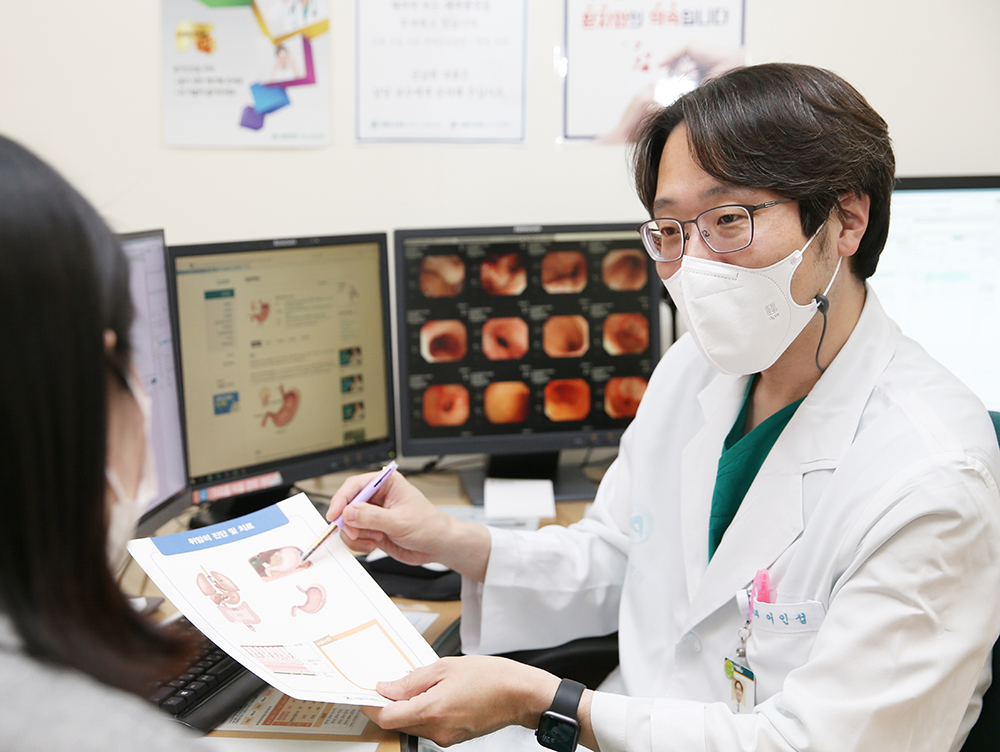-
- Global AMC MENU
- NEWS
- HEALTH
- PEOPLE
- Introduction

▲ Professor In-Seob Lee of the Division of Stomach Surgery
Patients with metastatic or locally advanced but unresectable gastric cancer receive chemotherapy. However, not all patients have satisfactory prognosis of chemotherapy. The medical team composed of Korean and American physicians recently discovered biomarkers that can predict the chemotherapy efficacy for gastric cancer blood analysis.
Professor In-Seob Lee of the Division of Stomach Surgery, together with a medical team of the City of Hope Comprehensive Cancer Center (U.S.), conducted a blood-based genomic analysis on patients with metastatic or locally advanced but unresectable gastric cancer and discovered two miRNAs that are differently expressed in patients whose chemotherapy outcomes were poor.
The joint research team collected blood samples from twelve patients diagnosed with metastatic or locally advanced but unresectable gastric cancer in the U.S. and conducted RNA sequencing. Eight patients responded well to the fluoropyrimidine plus platinum therapy while the remaining four did not. In this process, nine miRNAs out of some 530 miRNAs were found differentially expressed in the group of non-responding patients.
Later, polymerase chain reaction (PCR) testing was conducted with blood samples collected before chemotherapy from twenty nine Korean patients with metastatic or locally advanced but unresectable gastric cancer to see if the same miRNA-based biomarker can also be applied in Korea. There were fifteen responders and fourteen non-responders.
It was revealed from the result that the fluoropyrimidine plus platinum therapy was not effective when two miRNAs (miR-30a-5p, miR-192-5p) are overexpressed. This finding is expected to serve as a crucial foundation in the future for the development and application of optimal chemotherapy customized to each individual patient.
Professor Lee commented, “When the chemotherapy a patient receives shows unsatisfactory prognosis, the cancer may advance and the patient’s health condition may also deteriorate due to its toxicity. That is why selecting the first drug is extremely important. Although a further study in a greater scale may be required, this finding is meaningful given the near absence of treatment response prediction tool for chemotherapy used on patients with metastatic or locally advanced but unresectable gastric cancer as it offers the implication for precision oncology using non-invasive, blood-based biomarker.”
This study is recently published in ‘Molecular Cancer,’ a world-renown scientific journal in the field of cancer research.












